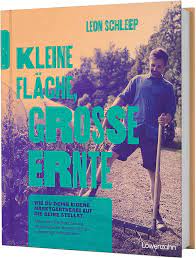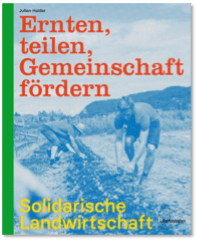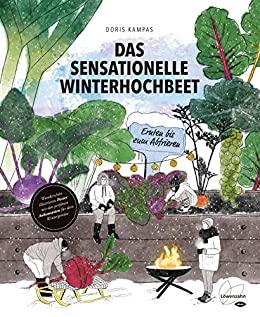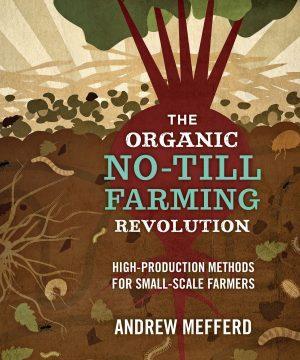Small Garden, Big Harvest
0,00 €
| Language of origin | |
|---|---|
| Publication date | |
| Infos : | Approx. 255 pages, hardback |
Make it a market garden: one for all
Market gardening – sounds super trendy and modern, doesn’t it? In fact, it’s just a new name for a concept that was invented in the 19th century by Parisian market gardeners. With the cultivation methods they established, they were able to produce enough vegetables to feed the entire population of Paris – reaping the rewards of their techniques in the truest sense of the word.
Leon Schleep gives a vivid demonstration of how these tried and tested methods of biointensive vegetable cultivation can be put to work today – and how they haven’t lost any of their advantages. On the contrary: this approach to agriculture is exactly what we need to recoup a bit of food sovereignty. Because, ultimately, market gardening doesn’t require much more than a small plot of land, the motivation to get your hands dirty, and knowing how to set up your garden most efficiently. And it’s exactly that knowledge you’ll find in this book: from A for allotment to Z for zucchini, the author explains all the stages of planning. And then? Are you ready to get your own market gardening venture off the ground and supply not just your own kitchen with fresh vegetables, but also your family and friends?
Keep both feet firmly planted
Monocultures, exhausted earth, compacted soil, chemical fertilizers all over the place – industrial agriculture has created several enormous issues. Issues that affect us all, because they have a permanent effect on soil fertility, and because healthy, nutritious plants simply can’t grow in weakened ground.
A market garden has an effect on soil quality, too – but in a positive way. The biointensive cultivation method ensures that soil develops healthily – and stays like that. Why? Because this method is focused on manual labour and self-regulating vegetable plots. The results are rich harvests and strong soil – all in just a few square metres. Leon Schleep explains just what regenerative agriculture is capable of achieving and how market gardens can create a foundation for big yields that don’t consume enormous amounts of resources.
Broadfork, baby: a technique with a future
Tractors and other heavy-duty machinery that works the soil to the point of collapse? No chance! Because if we just let soil do its thing, it can achieve an awful lot on its own – and give even more back. Leon Schleep shows how to get the most out of your plot of land using purely manual gardening techniques or mechanical equipment like broadforks, all in a way that allows the soil to regenerate continuously. It’s the very approach we need to strengthen our ecosystems and make our food sources fit for the future.
After all, community-supported agriculture (CSA) and regenerative methods hold unbelievable potential for supplying many people with organic food in a sustainable way. Need an example? Currently, Germany is home to more than 400 CSA projects. Let’s assume each of them supplies around 100 households, with an average size of 2.5 people per household – that’s more than 104,000 people routinely getting organic vegetables from their local area. Not bad, is it?
What makes this book unique is that the author describes exactly how to launch a market gardening venture, looking at all the most important aspects in turn: from the foundations of agricultural knowledge to the ideal arrangement of vegetable beds. As such, the book delivers theoretical basics and practical information on how to create a market garden from the ground up. Thanks to many different practical examples, readers will find it easy to adapt their own market garden to suit their needs, as well as to make accurate estimates when it comes to investment and yield. The book is made even more authentic and approachable by the fact that the author didn’t follow a strict blueprint himself, but instead built up his own store of knowledge through trial and error. Now, he shares his experiences with readers while also incorporating other market gardeners’ knowledge.





